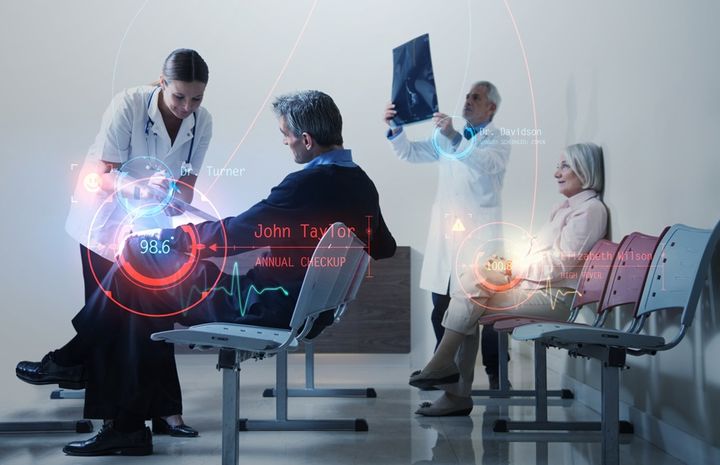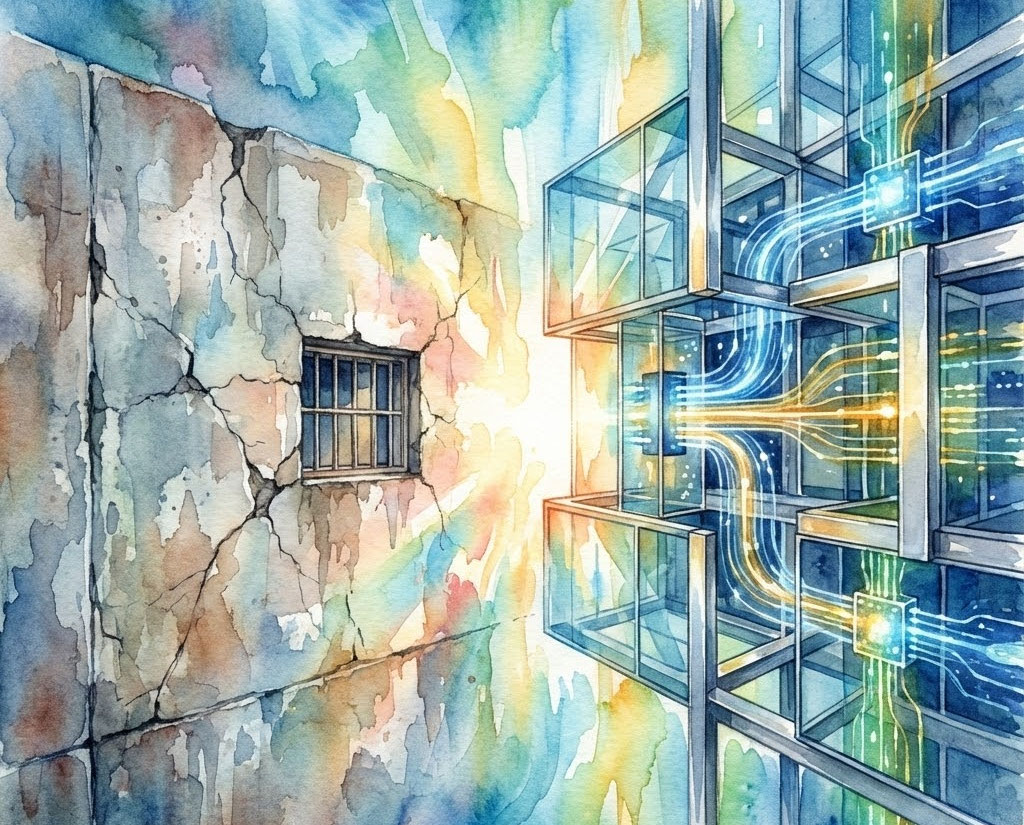
Back in 2013, Disney unveiled their MagicBand, an Radio Frequency Identification (RFID) wristband that allowed customers to walk around Disney World and simply wave their hand to pay for meals, skip through lines, and unlock their hotel rooms. At the same time, these bands stored personal information and preferences, allowing Disney to track customers, monitor their habits and spending, and thus accumulate vast scores of valuable customer data.
And now, design firms are contemplating bringing this same technology into a medical setting. Using a similar concept (a wristband equipped with short-range RFID chips) developers are envisioning a day when hospitals could replace patient ID bracelets with smart technology. These devices could not only store patient's medical information, but also make it available at a glance, allow patients hands-free access to their rooms, and let the hospital keeps tabs on them in real-time.
One such firm is argodesign, the design company started by Mark Rolston - who was the chief creative officer at the design firm (Frog) that developed Disney’s MagicBands. In the version his company is contemplating, the band would have two live radios, the first acting as a short range RFID signal that would allow patients to open doors and check into new areas.
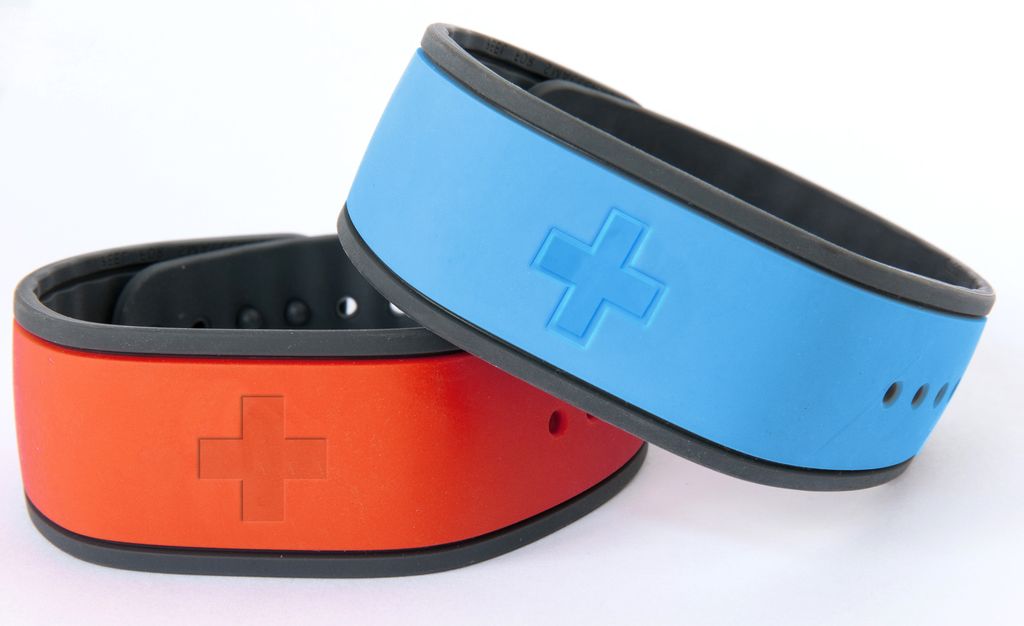
Similar in design to the DIsney MagicBand, arogdesign's concept uses a simple band and RFID chips. Credit: argodesign
The second radio would have a longer range (a la Bluetooth) that could track the positions of patients (or staff) throughout the buildings in real time. That data could allow the staff to track down a trauma surgeon instantly or let a doctor know right away if their patient was in trouble. It would also allow for a merger between health care and big data, which over time could be mined to reveal ways in which the hospital experience could be streamlined to benefit patients and doctors alike.
As Rolston explained in an interview with Co.Design, the incorporation of such bands in hospitals could make the entire process more efficient and cost-effective. "The notion of drive-thru health care is used as a derogatory term," he said, "but you actually want to inspire the drive-thru nature of health care! It’s the boring s---, where you're constantly filling out forms - if we can pull that out, maybe there’s some time and money freed up so more focus can be given to actual care."
Another design firm looking to make this happen is Alvin Systems, an Istanbul-based software company specializing RFID, Near-Field Communication (NFC), Universal Integrated Circuit Card (UICC), Smart Card and mobile platforms. For some time, Alvin has been seeking to bring RFID and other forms of wireless communications into health care, hoping to provide greater efficiency, improved services and enhanced workflow.
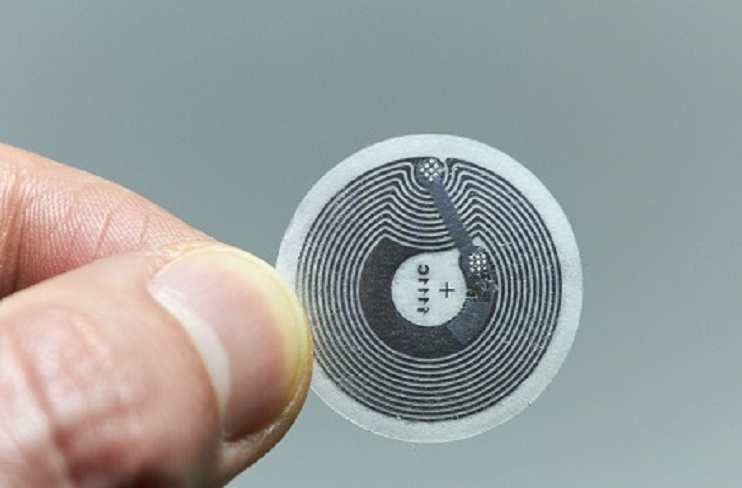
Using RFID, Alvin Systems hopes to streamline the delivery of medical services. Credit: healthitoutcomes.com
As they see it, a wristband that incorporates RFID technology could allow for real-time and accurate identification, a reduction of paper-bound administrative procedures (which are more prone to error and time-consuming), prevent patient identity mix-ups and medication errors, and provide intelligent identification and administration for specimen, blood, and tissue samples, as well as laboratory processes
Naturally, there are concerns about how this could infringe on patient privacy. If the technology behind MagicBands is brought into the hospital, patients may begin to wonder who will have the ability to see their medical records, and whether or not such databases can be remotely hacked. And naturally, patients and employees may feel the slightest bit violated by a monitoring bracelet that allows others to maintain real-time tabs on them.
But then again, hospitals are one area where big data and remote monitoring would be a major boon. As Royston sees it, additional sensors could monitor a patients vitals, allowing their doctor and assigned nurses to know exactly which patients are in trouble the moment they begin to experience elevated heartrate, breathing difficulties, or the onset of something serious like a heart attack or stroke.
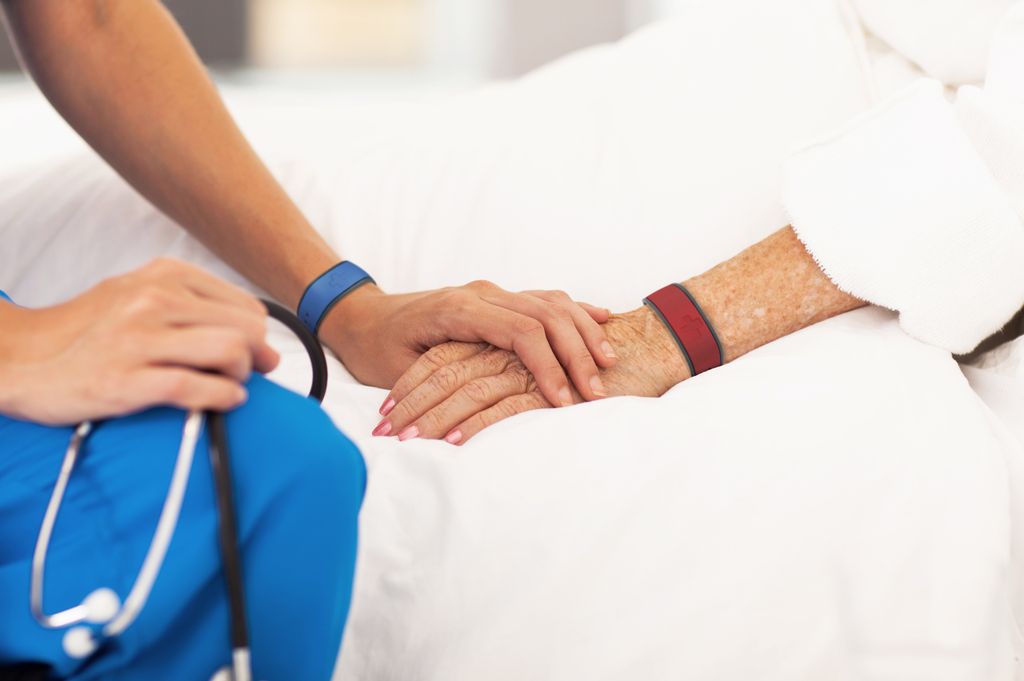
Doctors, nurses and patients could all take advantage of a smartband that allows for monitoring and information sharing. Credit: argodesign.com
Current alert systems require a patient to be hooked up to a large, cumbersome machine that will only issue an alert (i.e. "Code Blue") if and when a patient begins to experience cardiac arrest or respiratory failure. And in an environment where hundreds of patients are being monitored, the constant barrage of alarms going off can be very confusing. Personalized monitors could cut through all of that and make alters much simpler (and probably quieter).
And in the end, such a device seems like an inevitability. Between the growth of big data, mobile/wearable technology, personalized medicine, and wireless communications, it seems like only a matter of time before patients begin demanding the kind of integrated services that only a wearable smart monitor can offer. And as far as the health care system goes, anything that can promote efficiency, and save money and lives would seem like a no-brainer.
Of course, the cost of developing this technology is certainly going to be high for anyone getting in at the ground floor (it is estimated that Disney spent between $800 million and $1 trillion developing their MagicBand technology). However, those costs are likely to come down as the technology becomes more readily available. And undoubtedly, the long-term potential for savings is likely to outweight any concerns about the initial investment.
In all likelihood, smartbands are sure to become a regular feature in hospitals - just as mobile devices have become a regular feature in everyday society - and big data and the health care industry are likely to be the latest pairing born of the digital revolution.
Top image: argodesign.com
- www.argodesign.com/
- www.alvinsystems.com/default.aspx
- www.alvinsystems.com/resources/pdf/healthcare_rfid.pdf
- venturebeat.com/2013/01/07/disney-magic-bands/
- www.fastcodesign.com/3041595/a-disney-magicband-for-hospitals#1
- www.healthitoutcomes.com/doc/magic-bands-from-disney-to-healthcare-0001
- www.healthcarefacilitiestoday.com/posts/Can-Disney-MagicBands-work-for-hospitals-Industry-News--8181
- www.fastcodesign.com/1671616/a-1-billion-project-to-remake-the-disney-world-experience-using-rfid
